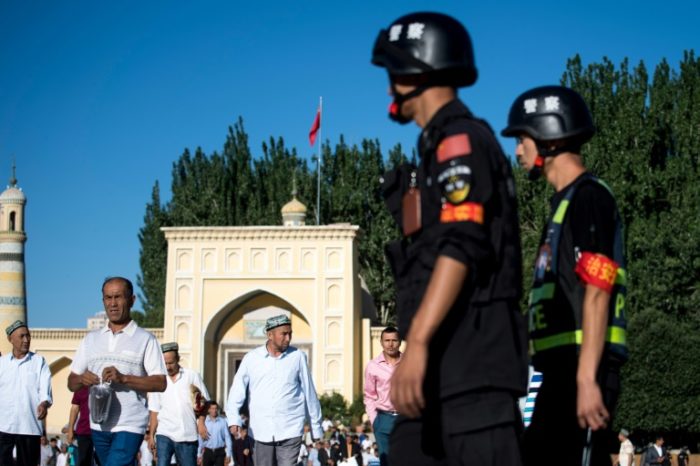Followed, Harassed: Foreign Reporters Say China Work Conditions Worsen

The Globe Post, 29 January 2019
 By The Globe Post Detentions, visa delays, and suspected phone bugging are among the challenges faced by foreign journalists in China, who say working conditions are getting worse with many reporting being watched and harassed.
By The Globe Post Detentions, visa delays, and suspected phone bugging are among the challenges faced by foreign journalists in China, who say working conditions are getting worse with many reporting being watched and harassed.
Surveillance was a key concern with close to half of respondents saying they had been followed in 2018, while 91 percent were concerned about the security of their phones, the FCCC’s report said.
Why This Matters
China has accused foreign media of sensationalizing the issue but 23 respondents who visited Xinjiang in 2018 said they were subject to some sort of interference – including being forced to delete pictures or data, having their interviews disrupted or even being detained.
China says its far western region of Xinjiang is a harmonious area that's open for business.
But @PeterMartin_PCM says most Uighurs were "too scared" to talk to him– he was followed and searched throughout his trip #tictocnews https://t.co/zyue5LYcDz pic.twitter.com/p3RWm2a1Vn
— TicToc by Bloomberg (@tictoc) January 25, 2019
“I was followed and tracked for nearly 1,600 kilometers, by at least nine cars and 20 people… had armed police approach my vehicle with shields raised and tell me to put my hands outside the car,” said Nathan VanderKlippe of the Globe and Mail in the report, adding that he was detained multiple times in Xinjiang.
Chinese authorities say the country has a basic policy of “opening up to the outside world” including protecting the rights of foreign journalists, who may interview anyone who gives prior consent.
But correspondents report increasing pressure from Chinese officials.
Six correspondents said they felt their visa renewal difficulties were related to their news coverage, with at least four journalists issued short three-month or six-month visas, including Sankei Shimbun bureau chief Kinya Fujimoto, instead of the standard one-year stay.
“There is a risk that even foreign media will shy away from stories that are perceived as too troublesome, or costly, to tell in China,” said FCCC president Hanna Sahlberg.
“These trends run contrary to the FCCC’s hopes for real openness for foreign media to be able to cover China.”
What’s Next
The space in China for foreign journalists is quickly diminishing, said Patrick Poon, China researcher at Amnesty International.
“Unless they don’t report anything on human rights, they all face the increasing risk of losing their visas,” he told AFP.
China’s foreign ministry dismissed the report as “repetitive” from past years and not representative of the views of all foreign correspondents in the country.
“It is also basically not worth refuting,” foreign ministry spokesman Geng Shuang said at a regular press briefing.
“We are willing to do our best to help solve problems, but I am not sure whether publishing such reports is constructive or will help to solve the problem.”
More on the Subject
An E.U. delegation has been given access to China’s far western region of Xinjiang, a rare chance to gather evidence on controversial re-education camps that have drawn harsh criticism from rights groups and Western powers, officials told AFP Monday.
The officials got the impression that the Chinese authorities had carefully curated the trip to try to give a good impression – a school they visited had been freshly painted and it appeared that surveillance cameras had been removed.

